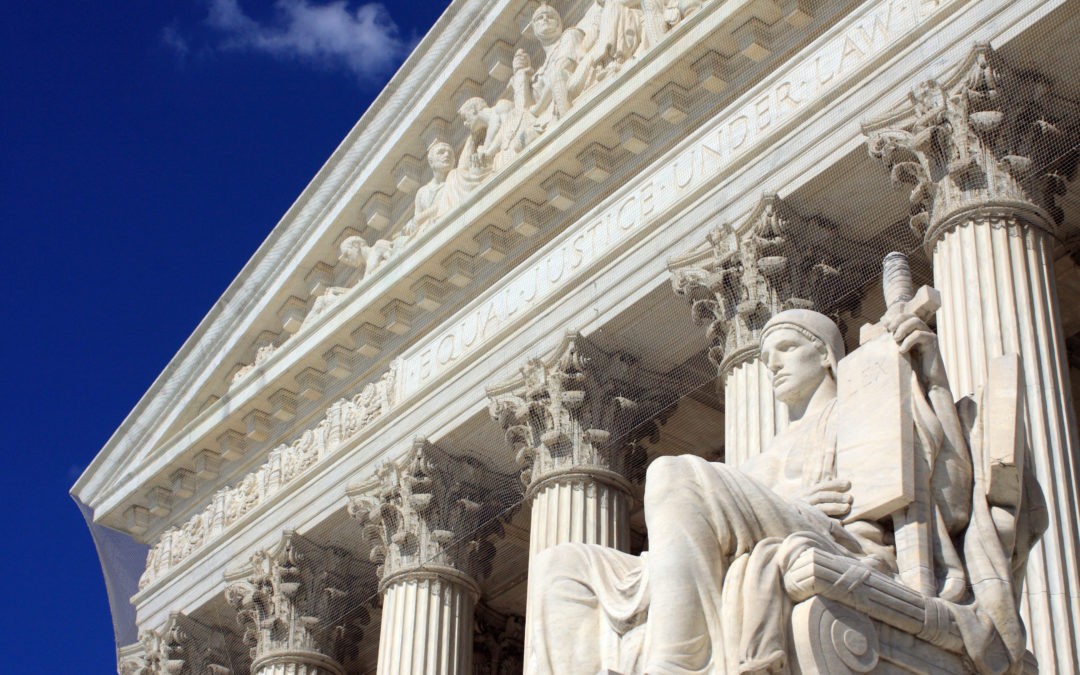The brief, filed on behalf of a multiracial group of students and alumni from the University of North Carolina-Chapel Hill, argues that affirmative action is both constitutional and necessary to address – and correct – the country’s history of unequal access to education.
WASHINGTON–Today, the Lawyers’ Committee for Civil Rights Under Law, the North Carolina Justice Center and pro bono counsel, Relman Colfax PLLC, filed a merits brief on behalf of the students and alumni from the University of North Carolina (UNC) to help defend the constitutionality of the university’s race-conscious admissions. The Lawyers’ Committee represented the students in successfully intervening in the case, Students for Fair Admissions (SFFA) v. University of North Carolina at Chapel Hill, in which the right-wing funded group SFFA seeks to eradicate over 40 years of established legal precedent allowing colleges to engage in a limited consideration of race in the admissions process to identify a diverse group of highly-qualified applicants and realize the benefits of diverse learning environments. This case was previously consolidated for briefing with SFFA v. Harvard College, which, similarly, was filed to prohibit Harvard from considering race as an admissions factor.
“Our country has a shameful, deeply racist history of gatekeeping higher education institutions from Black and Brown students. UNC’s own racist history lingers today with white supremacist relics strewn across campus. But UNC has made progress by tearing down some of those relics and seeking greater diversity through its lawful affirmative action program. Race-conscious admissions is a cornerstone to advancing opportunities for communities of color–and that impact goes far beyond just the classroom. Reversing precedent is reversing progress and any attempt to gut affirmative action will not only close doors to excellent students but will immediately destroy the ability to address that terrible legacy,” said David Hinojosa, Director of the Educational Opportunities Project.
“‘Being Black is intrinsically linked to all my life experiences, and therefore, my college application. This lawsuit is a blatant attempt to undervalue and overlook students of color like me. I’ve witnessed firsthand the benefits of a multiracial campus–one that accurately reflects the society we live in, and allows students to have a more culturally enriched educational experience. It will be a disservice to all students if we undo the progress we’ve made on diversifying schools across the country, which is in significant part thanks to affirmative action,” said Andrew Brennen, UNC Class of 2019.
The brief outlines how race-conscious admissions are consistent with the Fourteenth Amendment’s Equal Protection Clause, and the importance of equal educational opportunity that was recognized in the landmark Brown v. Board of Education decision. It also uplifts significant student and alumni testimony on the benefits of racially diverse classrooms, campuses, and workplaces. These benefits include breaking down stereotypes, reducing prejudice, building cross-racial understanding, and encouraging relationships across racial lines. In addition, the brief challenges false, normative notions of merit by noting that criteria such as standardized test scores systematically underpredict the talents of Black, Hispanic, and other historically marginalized students of color.
“From confronting America’s racial caste system in Brown v. Board of Education to today’s litigation to stop baseless attacks on Critical Race Theory and truthful curriculum, education has always been a battleground for the civil rights movement. Defending affirmative action is about more than just ensuring qualified students of color have a fair shot in a system that constantly stacks the deck against them. It is about shifting false, but dominant narratives about merit–about who is deserving, who belongs, and who does not.” said Damon Hewitt, President and Executive Director.
Case Background:
- SFFA v. UNC Chapel-Hill and SFFA v. Harvard were both filed in 2014, and seek to eradicate over 40 years of established legal precedent, which allows colleges to consider the race of highly-qualified applicants in admissions to promote the benefits of diverse learning environments.
- UNC and Harvard both implement holistic admissions processes that review letters of recommendation, guidance counselor reviews, essays, and experiences, alongside academic performance.
- The courts in both cases closely scrutinized the policies and practices of UNC and Harvard and only after reviewing the substantial record in each case did they conclude that each race-conscious plan was lawful.
- Both court opinions recognize the important testimony of UNC and Harvard students and alumni from multiracial backgrounds who confirmed that exposure to diversity in college is necessary to better prepare future leaders for their careers in the growing diverse workforce (i.e., doctors, social service agencies and businesses).
- The Justice Department, on behalf of the United States of America, advised the Supreme Court not to grant cert as there was “no sound basis” to review the lower courts opinions and that SFFA’s arguments to overturn the Court’s precedents lacked merit.


